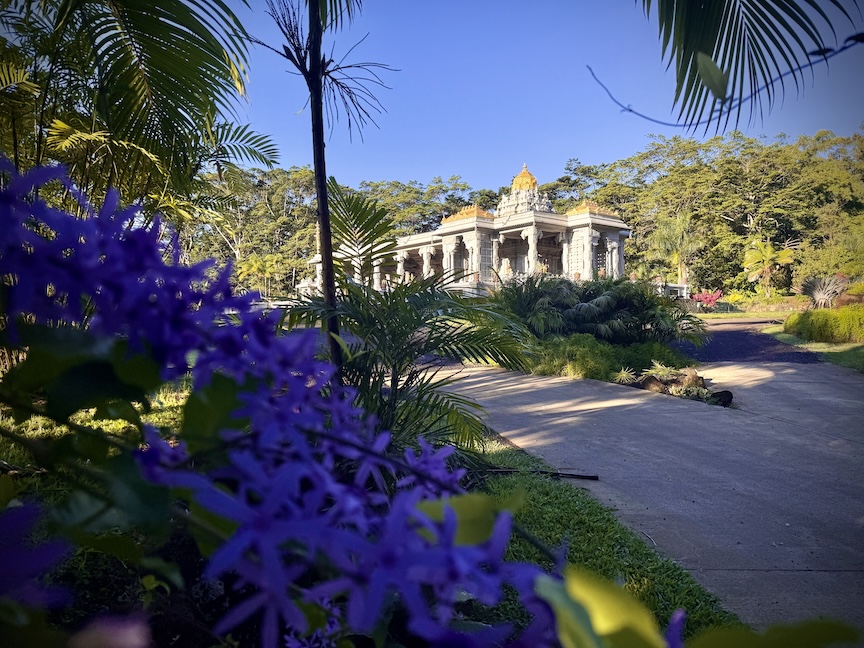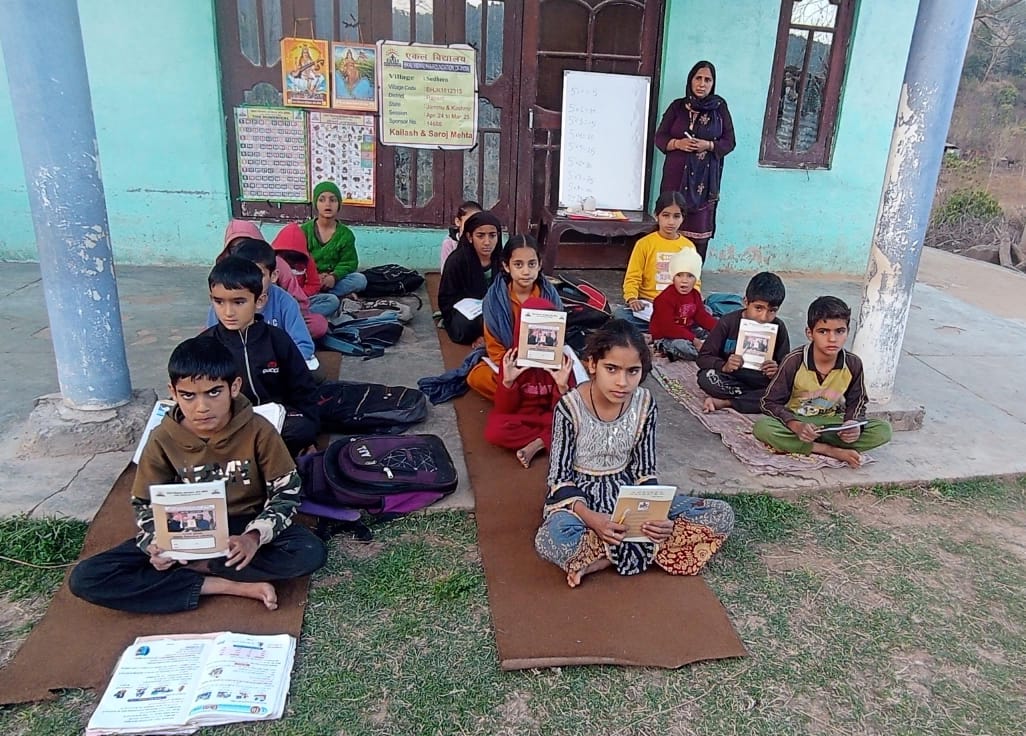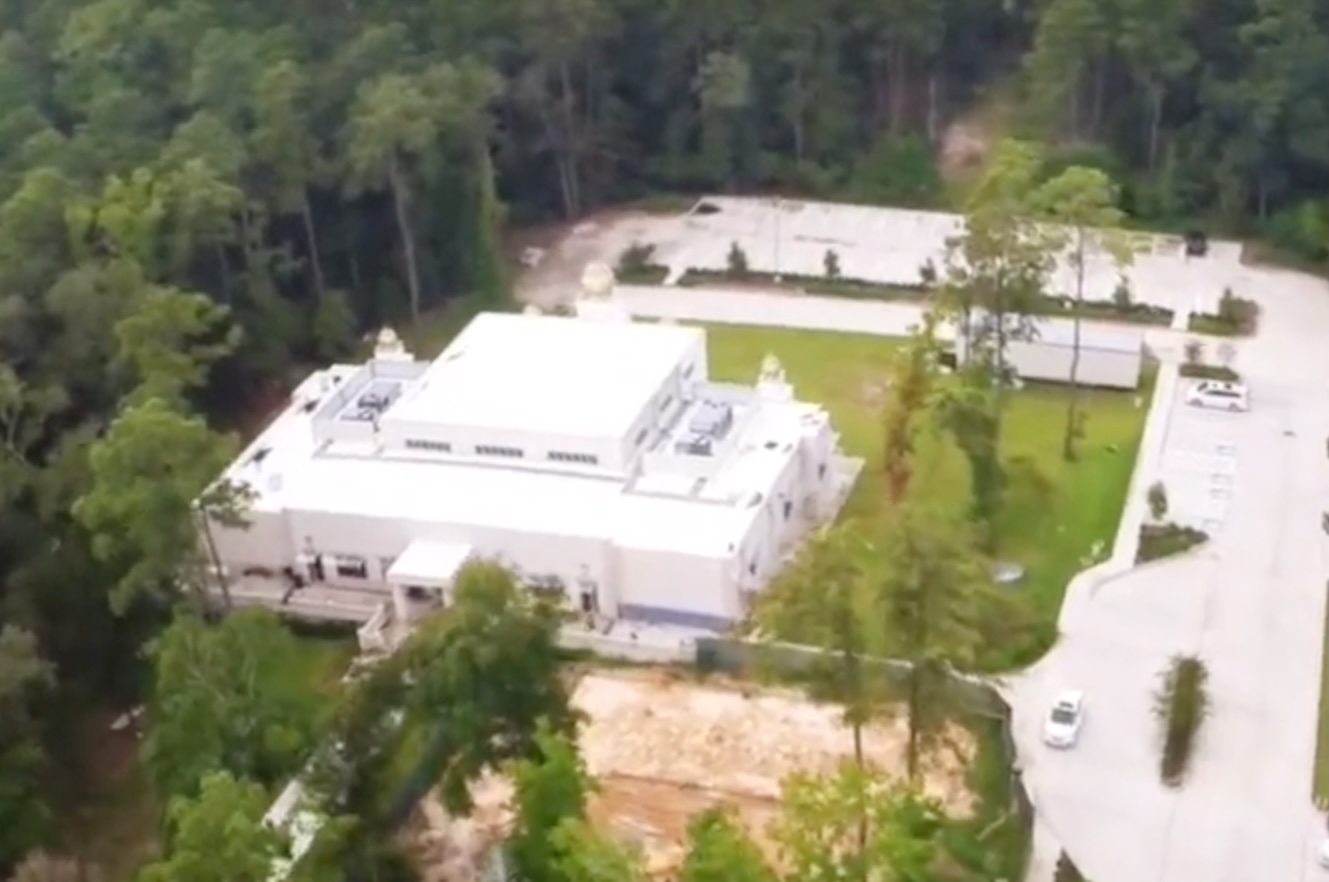
Harnessing a HurricaneOn September 11, 1992, Hurricane Iniki struck a direct hit on the island of Kauai. The eye of this Category 4 hurricane went right over the monastery. Great damage was wrought by that storm. Three monastery buildings were destroyed, along with 10,000 trees and plants. It was months before electricity and running water were restored. That was a great challenge to the monks. But Gurudeva took it all in stride. He saw Siva at work even in this tragedy. He had the monks bake bread each day and take it, along with fresh cow’s milk, to the neighbors, who were stranded at home since all the roads were blocked. Gurudeva laughed and made the experience a positive one, which was amazing since the destruction and the disruption was so severe. It was a lesson to all the monks, a reminder and a living example of Gurudeva’s teaching that it is not what happens to us in life that matters, it is how we react, how we respond. And he responded to disaster with grace, turning the devastation of the monastery he had worked a lifetime to create into an ingenious way to preserve it forever. It happened like this. When, months later, the monastery received the woefully inadequate insurance check for $300,000, Gurudeva refused to cash it, but kept it in his room and meditated on its best use. After a few days, he told the monks that he was putting it all in the bank, and that not a penny would be spent. That fund would earn interest that could be used to repair the damaged monastery. It might take ten years, he said, but at the end of that time all the facilities would be restored, and the $300,000 would still be intact. It was a brilliant move, and it taught the monks about the power of endowments. Gurudeva worked with Paramacharya Bodhinatha, his senior disciple, to create a unique financial institution, Hindu Heritage Endowment (HHE), officially founded in 1994. As of 2023, HHE has over 76 funds and $20 million in assets, helping orphanages, temples, swamis, ashrams and publications around the world. Turning a natural disaster into a global service institution typified the way Gurudeva worked with energy, transmuting it for a higher purpose. Gurudeva was engaged in every aspect of his mission, knew every detail, approved every budget. He held weekly stewards’ meetings with his senior monks, often at seaside hotels, to keep an overview of his global mission. “As I see it, everything that was strong survived, and everything weak was destroyed in the face of wind gusts measured at 194 miles per hour at the Kauai NASA station. The whole island was engulfed and few escaped damage. “What is to be done with all this energy? From a mystical point of view, external or internal, negative or positive, energy can be run through the converter named jnana (wisdom) and turned into a creative force. At our spiritual center, we put most of ours into newer and bigger and better publications, including Hinduism Today. “The scriptures say adversity makes strong men stronger. It is always best to face adversity and success in equanimity, and we have to confess we enjoyed fetching water in buckets, beating our clothing on a rock by the river and cooking over an open fire. All these simple joys reminded us of the many times that our swamis lived the village life on the Jaffna peninsula.” Gurudeva founded Hindu Heritage Endowment as an independent public service trust to provide Hindu institutions with permanent, growing income through charitable endowments. He secured from the IRS a special ruling allowing that beneficiaries can be anywhere in the world. This enables wealthy Hindus in America to support their village temple in India, for instance, and receive a US tax deduction. He was not planning just for his own institution’s future, but the future of every Hindu institution in the world. Each quarter from 1994 to 2001 Gurudeva met for a day at the posh Princeville Hotel with HHE’s monastic stewards to monitor the funds, expand their capacity and refine their uses. HHE ultimately became a primary supporter of his monastic order and Iraivan Temple, fulfilling Gurudeva’s vision of self-sufficiency. “All the guardian devas of all the people in the beneficiary organizations and of all those who set up the endowment are involved in the HHE. It is a devonic creation, not forged by us, but bequeathed upon us from the Devaloka and the Sivaloka to fulfill a need. The guardian devas of each organization have a personal interest in Hindu Heritage Endowment because they are putting all their energy and thought into creating for each Hindu organization a permanent financial abundance so that its leadership can concentrate upon fulfilling its goals rather than on constant fund-raising and basic concerns about money.” |

Hinduism Today Lifetime Subscription Fund
Helps cover the magazine’s production and distribution costs









